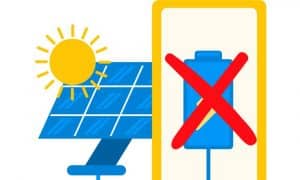The total installed capacity of solar energy systems in Scotland reached 140 megawatts in 2014 – a jump of 32% since the end of 2013.
WWF Scotland, Lightsource Renewable Energy and the Solar Trade Association say Scotland has seen a 6900% increase in solar PV capacity since 2010.
The solar revolution in Scotland has been primarily driven by residential uptake. More than 35,000 homes and 600 business premises in Scotland now have solar panels installed and home solar’s share of the 140 MW total capacity is now 126 MW.
“The total installed solar capacity may be small when compared to wind energy, but together these solar panels are helping to prevent thousands of tonnes of climate-damaging emissions being emitted every year,” said Lang Banks; director of WWF Scotland.

“The great thing about solar is that it can deployed easily and quickly in towns and cities or in places not suitable for wind turbines. Solar is also complimentary to wind and can share sites and grid connections,”
Wind energy also experienced a massive year in 2014. According to WWF Scotland and WeatherEnergy, wind turbines supplied approximately 8,958,130MWh of electricity to the National Grid during 2014 – enough to supply the electrical needs of 98% of Scottish households, or 2.36 million homes.
WWF is urging Scotland to not rest on its laurels.
“Alongside energy saving measures, renewable energy technologies like solar and wind will be important to enabling Scotland meet its climate change targets. We call upon the Scottish Government to do all that it can to help ensure Scotland switches on to the full potential of solar power,” said Mr. Banks.
“With 2015 being a critical year for addressing climate change internationally, it’s vital that Scotland continues to press ahead with plans to harness even greater amounts of clean energy.”
The Solar Trade Association echoed WWF’s call for increased support for solar.
“No other energy technology has delivered the scale of cost reductions seen in solar and no other technology has empowered such vast numbers of everyday people to take control of their power supply. It is vital to retain this momentum,” said the Association’s Leonie Greene.
















































